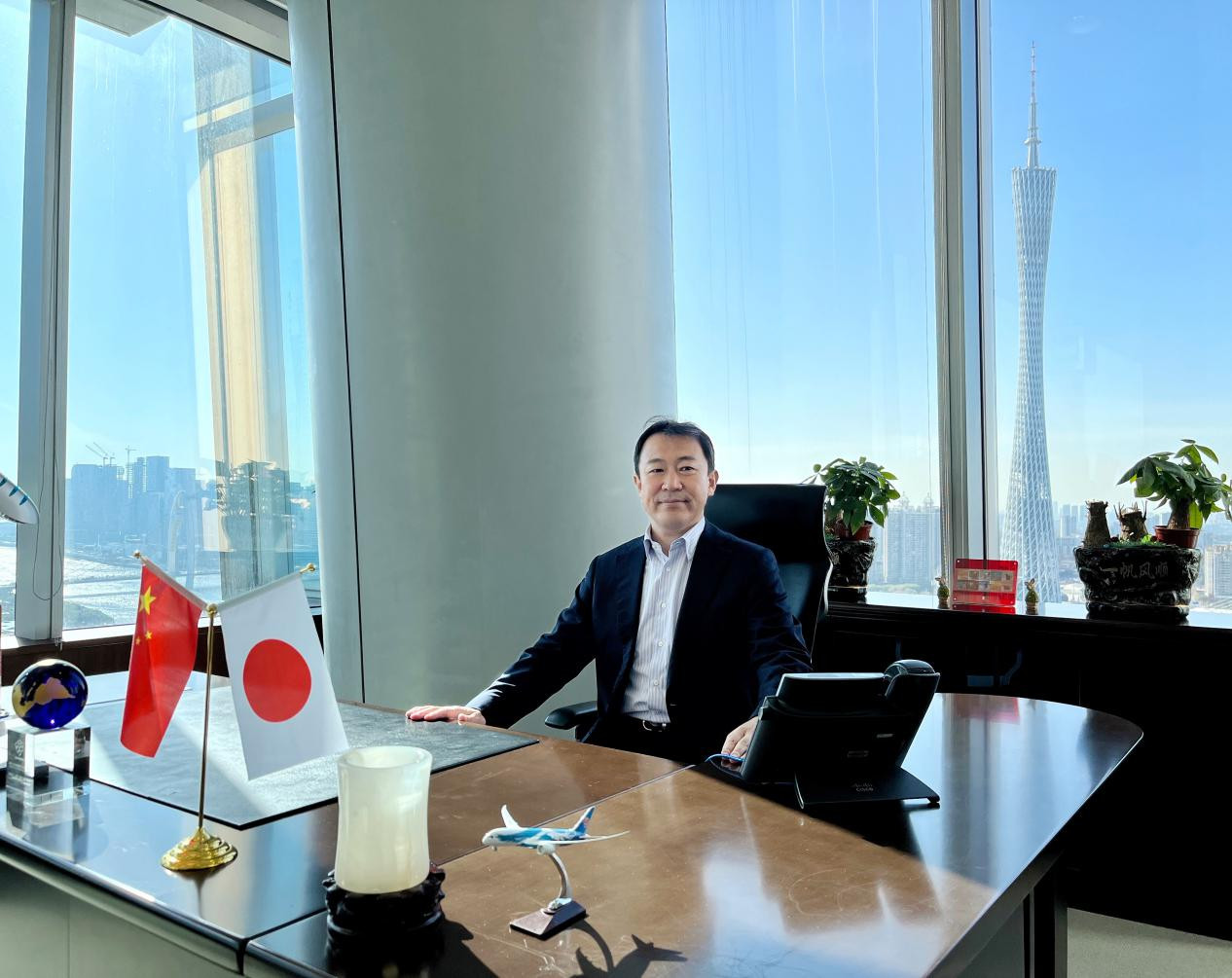03/15/2022 Source: newsgd.com
Share:
[Foreign investors' take on Guangdong Business Environment③]
Editor's Note
On March 1, the Regulations on Protection of Rights and Interests of Foreign Investors in Guangdong Province came into effect, aiming to improve its business environment and encourage more foreign businesses. GDToday launches a special report titled "Foreign investors' take on Guangdong's Business Environment" and shares unique insights from representatives of foreign investors in Guangdong.
Having settled down in Guangzhou for about 14 years, the Guangzhou Branch of Mizuho Bank (China), Ltd. is an important witness and participant of Guangdong's economic development and deepening investment cooperation with Japan.
"Guangdong's efforts to optimize its business environment and fuel the development of the Guangdong-Hong Kong-Macao Greater Bay Area (GBA) have brought opportunities for us," said Tanabe Hisato, General Manager of Guangzhou Branch of Mizuho Bank (China), Ltd.

Tanabe Hisato, General Manager of Guangzhou Branch of Mizuho Bank (China), Ltd.
In order to keep pace with China's green development, the bank has launched green bonds and helped with Guangdong companies' issue related securities.
According to a survey of Japanese firms doing business in China in 2021 released by the Japan External Trade Organization (JETRO) last month, Guangdong province has received more answers than the national average when Japanese companies were asked about the impact of business environment improvements on companies' performance last year. Also, Guangdong had a higher percentage than other levels nationwide of Japanese companies predicting to make a profit in 2021.
"These data also fully reflect the achievements of Guangdong in furthering the reform of management and service, and improving its business environment," Tanabe Hisato stated. Thanks to province's trade facilitation policies, the bank is the second foreign bank approved to offer services of facilitating foreign exchange in trade and goods for pilot companies in the GBA.
In addition, local governments have provided a series of supporting measures since the outbreak of COVID-19, such as easing visas, resuming direct flights, improving quarantine conditions and more. These efforts have facilitated personnel exchanges between Guangdong and Japan during such a hard time.
Looking ahead to future cooperation between Guangdong and Japan, Tanabe Hisato believed the Regional Comprehensive Economic Partnership (RCEP) agreement, which came into effect on January 1 this year, will open up broader cooperation space for the two sides, especially in the field of automobile and parts manufacturing.
GDToday: The Regulations on Protection of Rights and Interests of Foreign Investors in Guangdong Province came into force on March 1. What do you think about the regulations?
Tanabe Hisato: The Regulations on Protection of Rights and Interests of Foreign Investors in Guangdong Province stipulate that the government may not set conditions that prohibit the entry of foreign investment into areas not on the negative list. It is a critical step in providing equal treatment for local and foreign companies in Guangdong and will bring more business opportunities for Japanese companies.
The Regulations state, government departments of the province that supervise the intellectual property rights (IPRs) protection, within its scope of duties, shall establish a cross-regional, inter-departmental fast response mechanism to protect IPRs, put in place a complete set of administrative law enforcement systems related to IPR protection, and handle infringements of IPRs owned by foreign investors and foreign-invested enterprises in accordance with the law.
Many Japanese clients from the vehicle industry are considering locating their headquarters or R&D centers in Guangdong for their investment in China.
China is to have a large health industry worth a predicted 16 trillion yuan by 2030. Many leading Japanese medical device and pharmaceutical enterprises are keen to enter the market. Therefore, we hope that the government can help them get into the market soon.
GDToday: The Regional Comprehensive Economic Partnership (RCEP) agreement came into effect on January 1, 2022. In your opinion, what opportunities will the agreement bring for further economic and trade exchanges between Guangdong and Japan?
Tanabe Hisato: The taking effect of the RCEP also marks that China and Japan establish bilateral free trade relations for the first time in history. The agreement will help optimize the allocation of people, technology, capital and markets, thus opening up a broader space for cooperation between Guangdong and Japan.
The agreement has reduced the import tariff of about 65% of automobile parts, which greatly benefits the automobile manufacturers who need to import parts from RCEP member countries. Besides, it will also benefit consumption and food industries. Some of our clients have shown great interest in investing in related industries here in Guangdong.
As Guangdong continues to extend the practice of processing international trade through a single window, reform customs clearance and facilitate cross-border e-commerce, our bank will seize opportunities brought by the RCEP to advance trade between GBA, Guangdong and Japan and help with the formation of China's "dual circulation" development pattern.
Author | Abby
Editor | Wing, Olivia, Nan, Jerry